August 20 stands as one of history’s most eventful days, witnessing the rise and fall of empires, groundbreaking discoveries, and moments that shaped our modern world across centuries of human achievement.
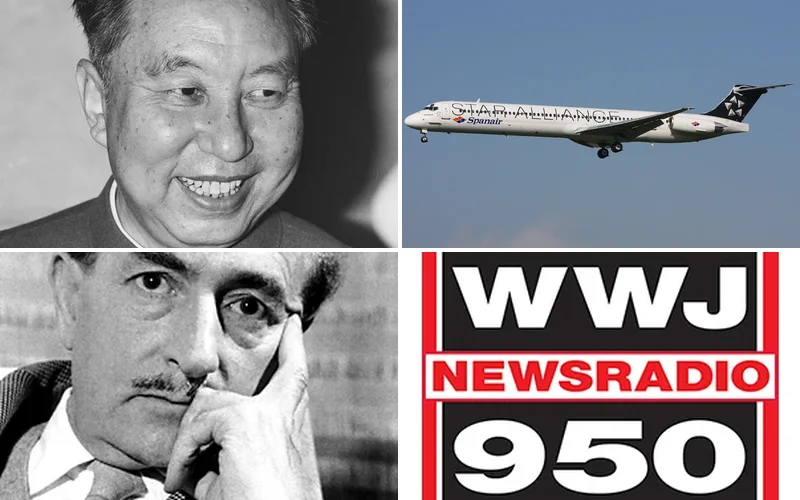
Politics and Government Events on August 20
1905 – Tongmenghui Revolutionary Organization Founded
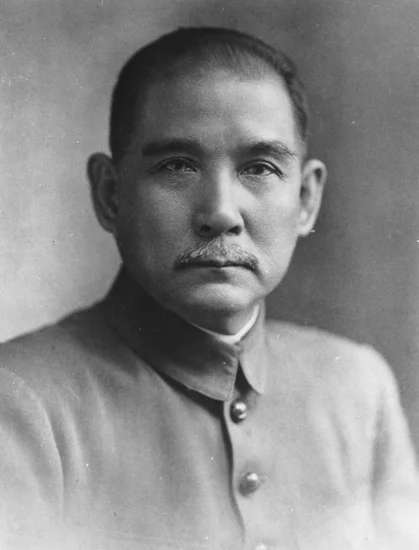
Sun Yat-sen, Song Jiaoren, and other revolutionary leaders established the Tongmenghui in Tokyo, Japan. This Republican organization formed to oppose the Qing Dynasty and promote democratic ideals.
The organization became instrumental in China’s eventual transition from imperial rule to republic. Their revolutionary activities ultimately contributed to the collapse of over two millennia of imperial Chinese governance.
1968 – Warsaw Pact Invasion of Czechoslovakia
Warsaw Pact forces invaded Czechoslovakia, brutally crushing the democratic Prague Spring movement. East German participation remained limited due to memories of World War II.
Only Albania and Romania refused to participate in this massive military intervention. The invasion marked a decisive moment in Cold War history and Soviet control over Eastern Europe.
1991 – Estonia Declares Independence Restoration
Estonia issued a formal decision re-establishing its independence from the Soviet Union. The declaration emphasized legal continuity with the pre-1940 Estonian state.
This bold move occurred during the chaotic August Coup attempt in Moscow. Estonia’s declaration inspired other Baltic nations to assert their own independence claims.
1991 – Soviet Parliament Protests Against Coup
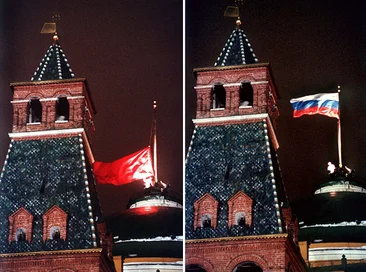
More than 100,000 demonstrators rallied outside the Soviet Parliament building in Moscow. Citizens protested the military coup aimed at deposing President Mikhail Gorbachev.
The massive demonstration showed popular opposition to hardline Communist leaders. These protests helped ensure the coup’s failure and accelerated the Soviet Union’s dissolution.
1948 – Soviet Consul Expelled from New York
The United States expelled Soviet Consul General Jacob M. Lomakin from New York City. The expulsion resulted from the controversial Kasenkina Case involving Soviet diplomatic personnel.
This incident highlighted growing tensions between former World War II allies. The diplomatic crisis foreshadowed the deepening Cold War confrontation between superpowers.
1949 – Hungary Becomes People’s Republic
Hungary adopted its new constitution and officially became a People’s Republic. The transformation marked the country’s complete integration into the Soviet sphere of influence.
Communist authorities consolidated their power through this constitutional change. The new system eliminated remaining democratic institutions and established single-party rule.
1960 – Senegal Independence from Mali Federation
Senegal broke away from the Mali Federation and declared its complete independence. The separation ended a brief political union between the two West African territories.
This peaceful transition established Senegal as a sovereign nation. The country’s independence marked another milestone in African decolonization during the 1960s.
2020 – Biden Accepts Democratic Presidential Nomination

Joe Biden delivered his acceptance speech for the Democratic presidential nomination virtually. The 2020 Democratic National Convention adapted to pandemic restrictions with unprecedented remote proceedings.
Biden’s speech emphasized unity and healing during a period of national division. His nomination set the stage for one of the most consequential presidential elections in American history.
Military and Naval History on August 20
1914 – German Forces Capture Brussels
German armies captured Brussels during their invasion of Belgium in World War I. The fall of the Belgian capital demonstrated the effectiveness of German military strategy.
This victory allowed German forces to continue their advance toward France. The capture of Brussels shocked European observers and highlighted Belgium’s vulnerability to invasion.
1940 – Churchill’s “Never Was So Much Owed” Speech
British Prime Minister Winston Churchill delivered his famous tribute to Royal Air Force pilots. The speech contained the immortal line praising fighter pilots during the Battle of Britain.
Churchill’s words honored the courage of British airmen defending against German attacks. This speech became one of the most memorable orations in wartime history.
1940 – Hundred Regiments Offensive Launched
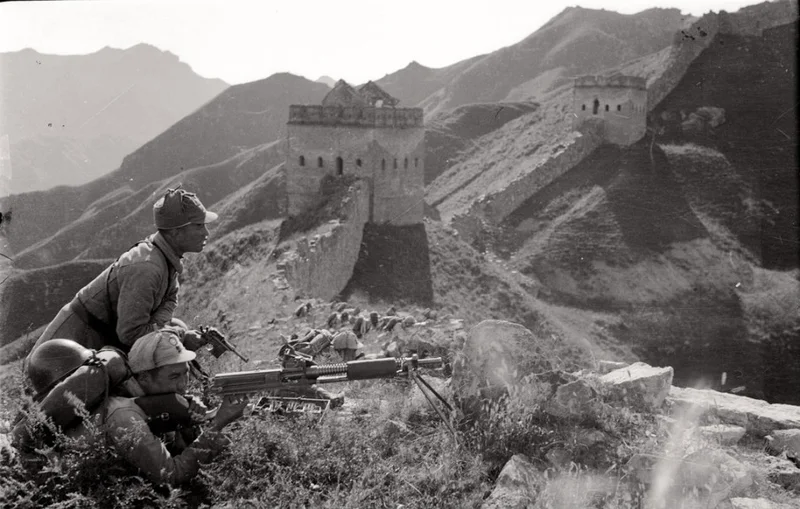
The Eighth Route Army launched a massive campaign against Japanese forces in northern China. This successful offensive disrupted Japanese war infrastructure and supply lines.
The campaign demonstrated Chinese resistance capabilities against Japanese occupation. Communist forces proved their effectiveness in guerrilla warfare and conventional military operations.
1944 – Allied Airmen Sent to Buchenwald
The Gestapo transported 168 captured Allied airmen to Buchenwald concentration camp. These prisoners faced accusations of being “terror fliers” by Nazi authorities.
Phil Lamason and other Allied aviators endured horrific conditions in the camp. Their treatment violated international laws governing prisoner of war status and protection.
1944 – Soviet Offensive Begins Battle of Romania
The Soviet Union launched a major offensive that initiated the Battle of Romania. This campaign aimed to drive German forces from Romanian territory.
The offensive marked a crucial phase in the Eastern Front fighting. Soviet success in Romania would eliminate a key German ally and open paths into the Balkans.
1988 – Iran-Iraq War Ceasefire Agreement
Iran and Iraq agreed to a ceasefire after nearly eight years of devastating warfare. The agreement ended one of the longest conventional wars of the twentieth century.
Both nations suffered enormous casualties and economic damage during the conflict. The ceasefire brought relief to war-weary populations on both sides of the border.
1998 – U.S. Cruise Missile Strikes

The United States launched cruise missile attacks against suspected al-Qaeda camps in Afghanistan. American forces also struck a suspected chemical weapons facility in Sudan.
These strikes retaliated for the August 7 bombings of U.S. embassies in Kenya and Tanzania. The attacks represented early military responses to al-Qaeda terrorist activities.
Science and Discovery Milestones on August 20
1975 – Viking 1 Launched to Mars
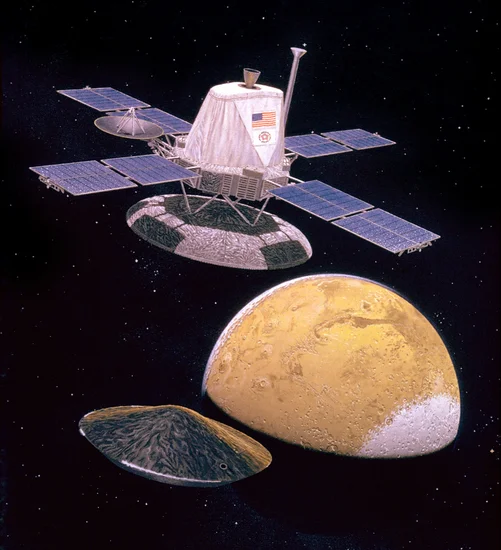
NASA launched the Viking 1 spacecraft on its historic journey to Mars. The mission aimed to orbit the planet and land on its surface for detailed scientific study.
Viking 1 would become the first American spacecraft to successfully land on Mars. The mission revolutionized understanding of Martian geology, atmosphere, and potential for life.
1975 – Voyager 2 Spacecraft Launch
NASA launched Voyager 2 as part of the ambitious Voyager program. The spacecraft began its journey to explore the outer planets of our solar system.
Voyager 2 would visit Jupiter, Saturn, Uranus, and Neptune during its epic voyage. The mission provided unprecedented scientific data about these distant worlds and their moons.
1962 – NS Savannah Maiden Voyage

The world’s first nuclear-powered civilian ship embarked on its maiden voyage. The NS Savannah demonstrated peaceful applications of nuclear technology for maritime transportation.
This groundbreaking vessel showcased American technological innovation during the Cold War. The ship’s nuclear propulsion system represented a new era in maritime engineering.
Cultural and Arts Events on August 20
1920 – First Commercial Radio Station Begins

Station 8MK (now WWJ) began operations in Detroit as America’s first commercial radio station. The broadcast marked the beginning of commercial radio entertainment in the United States.
This pioneering station transformed mass communication and popular culture. Radio broadcasting would revolutionize news, entertainment, and advertising across the nation.
1926 – Japan’s NHK Broadcasting Company Established
Japan established Nippon Hōsō Kyōkai (NHK) as the country’s public broadcasting organization. The company began providing radio services to the Japanese population.
NHK became the foundation of Japanese public broadcasting and media culture. The organization would play a crucial role in shaping Japanese society and communication.
1992 – Meitei Language Gains Official Status
The Indian government included Meitei (Manipuri) language in the scheduled languages list. This recognition made Meitei an official language of the Indian government.
The decision honored the linguistic heritage of Manipur state and its people. This milestone strengthened cultural identity and educational opportunities for Meitei speakers.
Religious and Social Events on August 20
1965 – Jonathan Daniels Civil Rights Death
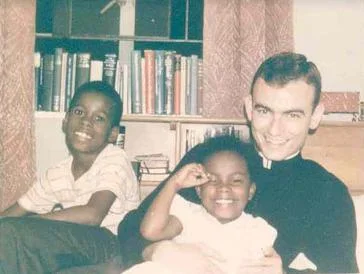
Jonathan Daniels, an American seminarian and civil rights activist, died at age 26. His death occurred during the height of the civil rights movement in Alabama.
Daniels had traveled to Alabama to support voting rights for African Americans. His martyrdom became a powerful symbol of interfaith cooperation in the struggle for racial justice.
1930 – Charles Bannerman Cricket Pioneer Dies

Charles Bannerman, Australian cricket legend and umpire, passed away at age 78. He had scored the first-ever century in Test cricket history.
Bannerman’s pioneering achievements helped establish cricket as Australia’s national sport. His contributions to cricket administration and umpiring lasted long after his playing career ended.
1914 – Pope Pius X Dies
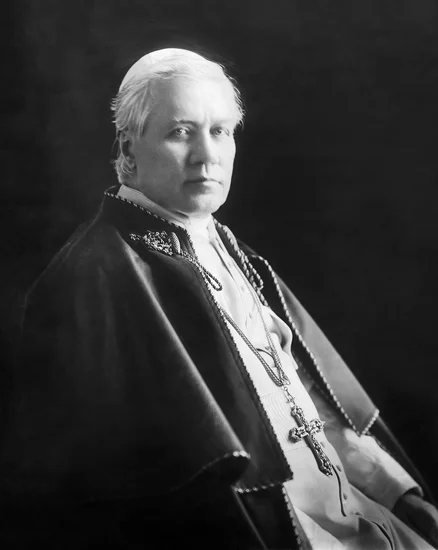
Pope Pius X died at age 78 after serving as the head of the Catholic Church. His papacy emphasized traditional Catholic doctrine and liturgical reform.
Pius X would later be canonized as a saint by the Catholic Church. His conservative theological positions influenced Catholic teaching for decades after his death.
Business and Economic Events on August 20
1986 – Edmond Post Office Shooting
U.S. Postal employee Patrick Sherrill killed 14 coworkers before committing suicide in Edmond, Oklahoma. The massacre shocked the nation and highlighted workplace violence issues.
This tragic event led to increased security measures in federal workplaces. The incident became synonymous with workplace violence and spawned the phrase “going postal.”
1991 – Marchioness Pleasure Boat Disaster
The pleasure boat Marchioness sank on the River Thames after a collision with another vessel. Fifty-one people died in this tragic maritime accident.
The disaster led to major changes in Thames river safety regulations. The incident highlighted the need for better navigation systems and safety protocols on busy waterways.
1995 – Firozabad Rail Disaster
A devastating train accident in Firozabad, India, killed 358 people. The disaster ranks among the deadliest railway accidents in Indian history.
The tragedy prompted major safety reforms in Indian railway operations. The accident highlighted the need for improved infrastructure and safety systems across India’s vast railway network.
Transportation and Infrastructure on August 20
1920 – National Football League Organized
The National Football League formed as the American Professional Football Conference in Canton, Ohio. This organization established professional football as a legitimate sport.
The league’s formation marked the beginning of organized professional football in America. The NFL would eventually become the most popular sports league in the United States.
2007 – China Airlines Flight 120 Fire

China Airlines Flight 120 caught fire and exploded after landing at Naha Airport in Okinawa, Japan. All passengers and crew evacuated safely before the dramatic explosion.
The incident highlighted aviation safety concerns and emergency response procedures. Investigators worked to determine the cause of the post-landing fire and explosion.
2008 – Spanair Flight 5022 Crash
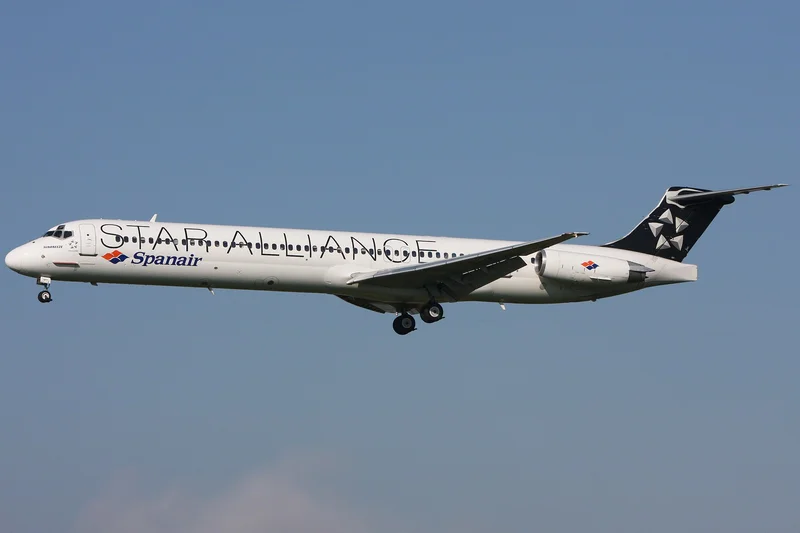
Spanair Flight 5022 crashed during takeoff from Madrid’s Barajas Airport, killing 154 people. The aircraft skidded off the runway and burst into flames.
Only 18 people survived the devastating crash involving 172 passengers and crew. The tragedy led to extensive investigations into aircraft safety systems and procedures.
Sports and Recreation on August 20
1938 – Lou Gehrig’s Record Grand Slam
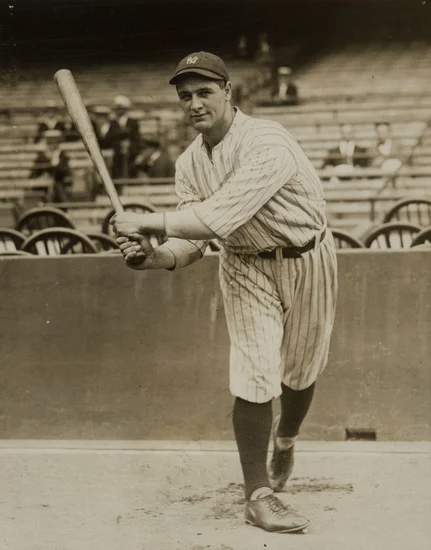
Lou Gehrig hit his 23rd career grand slam, establishing a record that stood for 75 years. Alex Rodriguez eventually broke this remarkable achievement in 2013.
Gehrig’s feat demonstrated his exceptional batting ability and clutch performance. The record showcased his consistent excellence during his legendary baseball career.
1988 – Black Saturday Yellowstone Fires

“Black Saturday” marked the worst day of the devastating Yellowstone National Park fires. The massive wildfires consumed vast areas of America’s first national park.
The fires changed forest management policies and public understanding of wildfire ecology. The disaster demonstrated nature’s power and the challenges of wilderness preservation.
1910 – Great Fire of 1910
Extreme fire weather caused multiple small wildfires to merge into the catastrophic Great Fire of 1910. The massive blaze burned approximately 3 million acres across the Inland Northwest.
Eighty-seven people died in the devastating fire that consumed forests across multiple states. The disaster led to major changes in forest management and firefighting techniques.
Notable Births on August 20
1901 – Salvatore Quasimodo Born
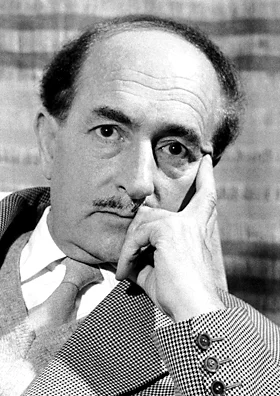
Italian novelist and poet Salvatore Quasimodo entered the world in Sicily. His childhood in southern Italy deeply influenced his literary sensibilities and themes.
Quasimodo would later receive the Nobel Prize in Literature for his exceptional poetry. His works captured the essence of Italian culture and the human condition.
1944 – Rajiv Gandhi Born

Future Indian Prime Minister Rajiv Gandhi was born into the prominent Nehru-Gandhi political dynasty. His early life prepared him for eventual leadership of the world’s largest democracy.
Gandhi would serve as India’s sixth Prime Minister until his assassination in 1991. His tenure marked significant modernization efforts and technological advancement in India.
1977 – Robert Plant Born

English singer-songwriter Robert Plant was born in West Bromwich, England. His powerful voice would eventually define rock music for generations.
Plant became the legendary frontman of Led Zeppelin, one of rock’s greatest bands. His vocal style and stage presence influenced countless musicians and performers.
1940 – Hideki Shirakawa Born

Japanese chemist Hideki Shirakawa was born in Tokyo, Japan. His early fascination with chemistry led to groundbreaking research in conductive polymers.
Shirakawa would later receive the Nobel Prize in Chemistry for his revolutionary discoveries. His work opened new fields in materials science and electronic applications.
1956 – Joan Allen Born

American actress Joan Allen was born in Rochelle, Illinois. Her early interest in drama shaped her future career in theater and film.
Allen would become one of Hollywood’s most respected dramatic actresses. Her performances earned multiple Academy Award nominations and critical acclaim.
1974 – Amy Adams Born

American actress Amy Adams was born in Vicenza, Italy, to American parents. Her family’s military background exposed her to diverse cultures and experiences.
Adams would become one of Hollywood’s most versatile and acclaimed actresses. Her performances spanning musicals, dramas, and comedies earned widespread recognition.
1931 – Don King Born
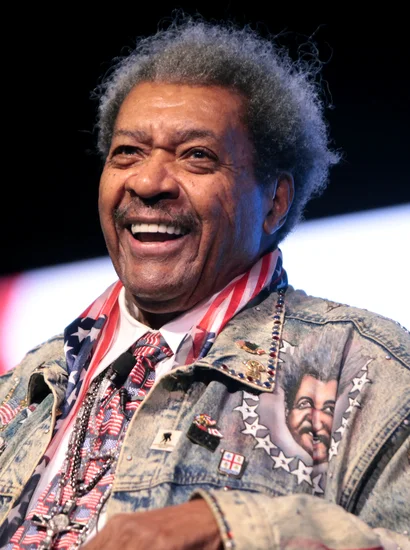
American boxing promoter Don King was born in Cleveland, Ohio. His charismatic personality and promotional genius would revolutionize professional boxing.
King became the most famous boxing promoter in history. His flamboyant style and controversial career shaped the sport for decades.
1983 – Andrew Garfield Born

American-English actor Andrew Garfield was born in Los Angeles, California. His early move to England influenced his acting training and career development.
Garfield would achieve international fame portraying Spider-Man in major Hollywood films. His dramatic performances also earned critical acclaim and award recognition.
Notable Deaths on August 20
1912 – William Booth Dies

William Booth, English preacher and co-founder of The Salvation Army, died at age 83. His religious organization provided aid to the poor and disadvantaged worldwide.
Booth’s humanitarian work transformed charitable giving and social services. The Salvation Army became one of the world’s most recognized charitable organizations.
1917 – Adolf von Baeyer Dies
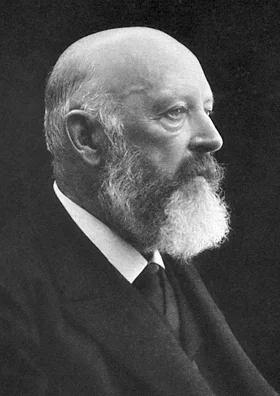
German chemist Adolf von Baeyer died at age 81 after a distinguished scientific career. His groundbreaking research in organic chemistry earned him the Nobel Prize.
Baeyer’s discoveries in dye chemistry revolutionized textile and chemical industries. His synthetic indigo production transformed commercial dyeing processes forever.
1915 – Paul Ehrlich Dies

German physician Paul Ehrlich died at age 61, leaving behind revolutionary medical discoveries. His work in immunology and chemotherapy earned him the Nobel Prize.
Ehrlich’s “magic bullet” concept led to targeted drug therapies for diseases. His research laid the foundation for modern pharmaceutical development and treatment.
1961 – Percy Williams Bridgman Dies
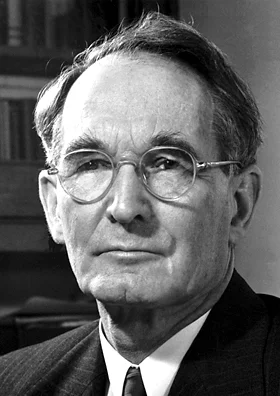
American physicist Percy Williams Bridgman died at age 79 after pioneering high-pressure physics. His experimental techniques earned him the Nobel Prize in Physics.
Bridgman’s work revealed new properties of matter under extreme conditions. His research contributed to understanding of planetary interiors and materials science.
2001 – Fred Hoyle Dies
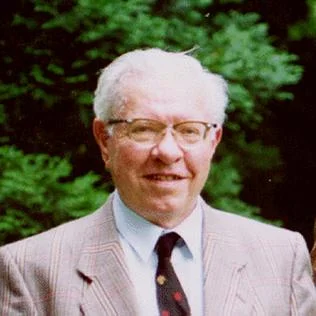
English astronomer Fred Hoyle died at age 86 after revolutionizing cosmology and astrophysics. His steady-state theory challenged prevailing cosmological models.
Hoyle coined the term “Big Bang” and advanced stellar nucleosynthesis theory. His work explained how heavy elements formed in stellar cores and explosions.
2008 – Hua Guofeng Dies
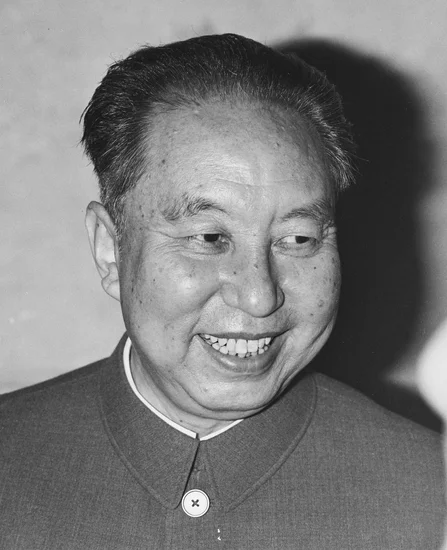
Chinese politician Hua Guofeng died at age 87 after serving as Premier of the People’s Republic of China. He briefly led China after Mao Zedong’s death.
Hua’s leadership marked a transition period in Chinese politics and policy. His tenure preceded Deng Xiaoping’s economic reforms and opening to the West.
2017 – Jerry Lewis Dies

American actor and comedian Jerry Lewis died at age 91 after a legendary entertainment career. His physical comedy and partnership with Dean Martin entertained millions.
Lewis’s annual Labor Day Telethon raised hundreds of millions for muscular dystrophy research. His humanitarian work matched his contributions to American comedy and film.
Holidays and Observances on August 20
Independence Restoration Day in Estonia
Estonia celebrates Independence Restoration Day, commemorating the 1991 re-declaration of independence from the Soviet Union. The holiday honors the nation’s successful struggle for freedom and sovereignty.
This observance marks one of history’s most significant peaceful transitions to independence. Estonian citizens celebrate their democratic values and cultural heritage on this important national day.
World Mosquito Day
World Mosquito Day raises awareness about mosquito-borne diseases and their prevention. The observance promotes public health education and disease prevention strategies worldwide.
This global health initiative highlights the importance of mosquito control and research. Medical organizations use this day to educate communities about malaria, dengue, and other mosquito-transmitted diseases.
Saint Stephen’s Day in Hungary
Hungary observes Saint Stephen’s Day, honoring the nation’s first king and patron saint. The holiday celebrates Hungarian statehood and Christian heritage.
This national holiday commemorates King Stephen I’s role in establishing the Hungarian kingdom. Hungarians celebrate their cultural identity and historical achievements on this important feast day.
Revolution of the King and People in Morocco
Morocco commemorates the Revolution of the King and People, celebrating national unity and independence. The holiday honors the Moroccan people’s struggle for freedom and sovereignty.
This observance recognizes the collaboration between Morocco’s monarchy and citizens in achieving independence. The day celebrates Moroccan national identity and political development.
